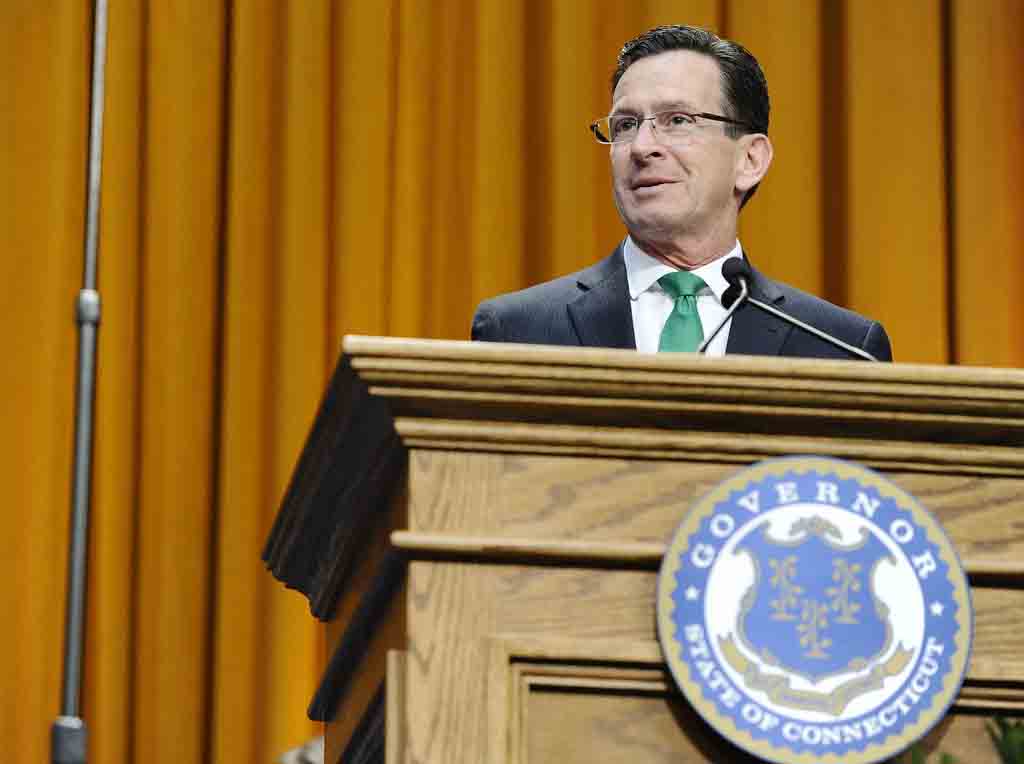
Office Of Governor Dan Malloy
Facing public outcry after last year’s funding cuts, an overwhelming majority of the Connecticut General Assembly voted on Jan. 31 to override Gov. Dannel Malloy’s veto of a bill that would restore full funding for the Medicare Savings Program.
The Medicare Savings Program provides financial assistance for over 100,000 low-income seniors, as well as people with disabilities. In last year’s budget, the program’s income eligibility limit was lowered by about 50 percent, saving the state $54 million in fiscal year 2018. The bill, which would prevent the state from lowering the maximum qualifying income until July 1, overcame the governor’s veto by a 131–4 vote in the House and a 30–1 vote in the Senate, with support from leaders of both parties.
“Legislators heard from residents across the state that this program should be restored,” State House Majority Leader Matt Ritter, D-Hartford, said in a statement to the News. “I am pleased we were able to work together, Democrats and Republicans, on this important issue.”
Similarly, State Senate President Pro Tempore Len Fasano ’81, R-North Haven, said in a Jan. 31 statement that he applauds “the efforts of lawmakers on both sides of the aisle for doing the right thing and standing up to Gov. Malloy.”
Federally administered Medicare requires enrollees to pay for their own premiums and copays, and the state-run program helps to cover all or part of those costs for people with incomes as high as $ 2,472 a month, according to Matthew Katz, executive vice president of the Connecticut State Medical Society. He credited the program’s swift restoration to the advocacy efforts of patient groups and healthcare providers.
Ellen Andrews GRD ’89, executive director of the Connecticut Health Policy Project, said that senior citizens are more politically motivated than other demographic groups. While many Republicans may be wary of health care assistance to able-bodied people, she added, few harbor doubts about the need to aid senior citizens and people with disabilities. According to Andrews, some legislators may not have been aware of the significance of the program when they voted for the cut in October.
Malloy, however, cited budgetary concerns as his reason for vetoing the bill. He took issue with the General Assembly’s approach to funding the program, which included canceling money transfers to the next fiscal year, reducing contributions to the teacher’s pension fund and reducing general administrative expenses.
“The bipartisan budget changes adopted to fund the Medicare Savings Plan are wishful thinking, double counting and pushing off problems into the future,” Malloy said in his veto message on Jan. 16. “This bill has essentially done nothing to the state’s budget operations in order to fund the restoration of the Medicare Savings Plan by either adding new revenue or reducing state spending levels.”
Malloy also noted that he had already delayed the cut until July 1 through executive action, but many legislators questioned the governor’s authority to do so. Fasano said Malloy’s approach “violates the constitution.”
Katz said that he expects the General Assembly to begin deliberations on the program’s long-term financing once lawmakers return to session this week. The 2018 session ends in May, he noted, which should provide enough time for considerations of a new, more comprehensive bill.
“Any solution, whether temporary or permanent, is necessary, though it is our hope that they find a permanent solution,” Katz said.
The funding cut of the Medicare Savings Program was part of a larger rollback in healthcare assistance in Connecticut, according to Andrews. Last year’s budget also ended aid to middle- and lower-income parents, who now stand to lose their health care coverage.
Katz added that due to the budget deficit, the state — especially in the last two years — has reduced the rate at which it reimburses providers for Medicaid services. He said that such cuts may force many providers out of the market and restrict access to health care for needy patients.
“It’s penny-wise and pound-foolish,” Katz said.
Still, Andrews expressed optimism for the future, noting that the passage of this bill may be the sign that people are rejecting the binary choices of raising taxes or cutting services. She suggested that Connecticut has already saved hundreds of millions of dollars by bypassing private insurers and directly reimbursing providers, adding that there are smarter ways to achieve savings without hurting the needy.
Connecticut’s budget deficit is projected at $245 million this fiscal year, comptroller Kevin Lembo announced on Thursday.
Malcolm Tang | jiawei.tang@yale.edu







